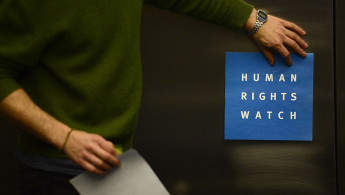Morocco accuses HRW of siding with Polisario after criticism of freedoms in Western Sahara
The Moroccan Interministerial Delegation for Human Rights (DIDH) denounced on Monday Human Rights Watch (HRW)’s latest report on freedoms in Western Sahara, accusing the international organisation of targeting Morocco through a systematic political campaign.
“This is a monumental proof of its [HRW] involvement in a systematic political campaign that is hostile to Morocco, and of the inconsistency of its reasoning in addressing the real facts,” said the delegation in a statement published in the Maghreb Arab Press (MAP) official news agency.
The New York-based NGO, whose reports deal with freedoms and rights' violations around the globe, said Moroccan authorities had systematically prevented gatherings held in support of Sahrawi self-determination in 2021. It also accused Rabat of obstructing the work of some local NGOs and cracking down on activists and journalists.
Western Sahara territory has been under Moroccan control since Spain, the territory’s former colonial administrator, withdrew from it in 1976. The kingdom claims sovereignty over the region, while the Algeria-backed Polisario Front calls for its independence. The UN stance on the dispute is that the people of Western Sahara should be allowed to vote in a self-determination referendum.
The HRW report also tackled the NSO Pegasus scandal and the poor status of women's rights in the kingdom. It held Moroccan authorities accountable for using Israeli spyware to hack Moroccan journalists and activists' mobile phones. Rabat had already rejected these accusations last year.
“Proving its alignment with the thesis of the godfather of separatism, [HRW] has disregarded the prerequisites of impartiality that are supposed to drive the work of a human rights organisation,” added the Moroccan delegation.
Little attention was paid to HRW’s criticism of freedom of expression and the Family Code in the kingdom.
This is not the first time that Rabat questions the impartiality of HRW. Last year, the DIDH said the NGO lacked objectivity.
In 2019 Morocco described the HRW reports as “approximate” and centred on hasty conclusions.





 Follow the Middle East's top stories in English at The New Arab on Google News
Follow the Middle East's top stories in English at The New Arab on Google News


